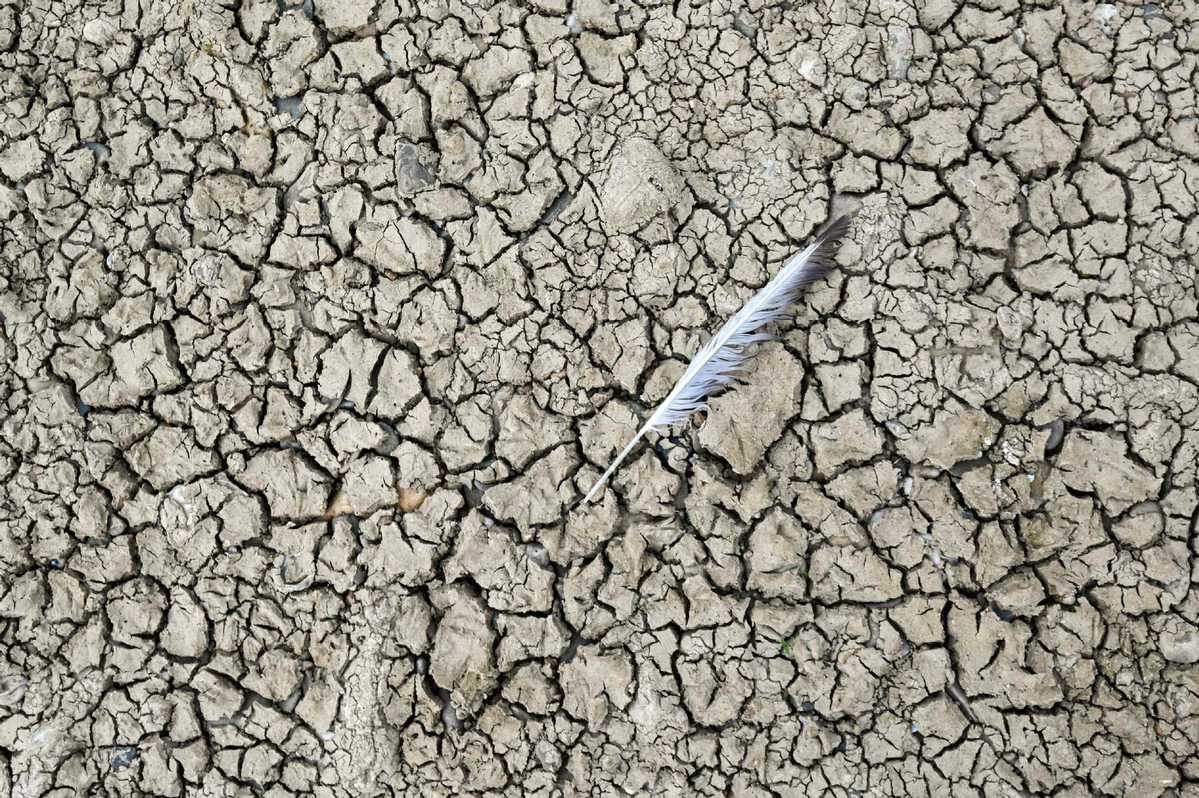Heatwave a stark warning that 'planet is on fire', demanding more global cooperation, experts say
Xinhua | Updated: 2022-07-27 08:55

GENEVA - Week-long heatwaves have become a global "wake-up call" for joint efforts to cut emissions and shift to more renewable energies.
"These extreme weather events are a big wake-up call for leaders, whether in business or in government, to really act in increasing the emission reductions that should be undertaken already," Angela Consuelo Ibay, climate change and energy program head at World Wide Fund for Nature Philippines, told Xinhua via video link.
"This heatwave is the new normal," said Petteri Taalas, the Secretary-General of the World Meteorological Organization based in Geneva, earlier this week.
On Tuesday, a record 40.3 degrees Celsius was recorded in Britain, with widespread extreme heat, wildfires and stress on health systems reported across the European continent.
"We have broken an all-time high in the UK," Taalas warned. "Heatwaves will happen more frequently because of climate change."
According to the International Panel on Climate Change (IPCC), temperatures will rise more quickly in Europe than elsewhere.
The IPCC expects a worrisome combination of climatic impact-driver changes by mid-century if global warming exceeds 2 degrees Celsius in the Mediterranean, such as temperature extremes, an increase in droughts and aridity, drops in precipitation, increasing wildfires, sea level extremes and less snow cover.
The IPCC Special Report on Extremes also shows that heatwaves will be more frequent, more prolonged and more intense in the 21st century, adding that early warning systems and reinforced health systems will be needed.
"We're seeing more and more clearly that it's not about why we should act, but it's about how. The planet is on fire," the President of the World Economic Forum, Borge Brende, told Xinhua earlier this week.
"We really, really need to get our act together now. It's even more complicated now because energy prices are soaring. There is also lack of access to gas and electricity in parts of the world and at the same time we really need to make sure that the future energy is not from fossil fuel," said Brende.
The hottest temperature ever recorded in Europe was 48 degrees Celsius in Greece in 1977. A suspected new record of 48.8 degrees in the southern Italian island of Sicily may have occurred in 2021 and is currently being reviewed by World Meteorological Organization.
"These extreme weather events are also impacting the global energy transition," Ibay explained. "The more it's getting warmer, people want to be cooler. But by cooling, we should think about what is powering that cooling itself. The cooling should take into consideration clean energy systems so that we're not adding on to the warming that's already happening."
Meanwhile, As extreme weather events occur more frequently, more international cooperation is needed to improve early warning systems for countries around the world, World Meteorological Organization's chief of applied climate services Robert Stefanski told Xinhua through email.
"At the COP21 (2015) in Paris, several countries came together to establish the Climate Risk and Early Warning Systems initiative that has the objective to save lives, assets and livelihoods through increased access to early weather warnings and risk information for people in Least Developed Countries and Small Island Developing States, the world's most vulnerable countries," he said.
However, one-third of the world's people, mainly in least developed countries and small island developing states, are still not covered by early warning systems. "In Africa, it is even worse: 60 percent of people lack coverage," Stefanski added.
In November last year, negotiators agreed on a new global pact to tackle climate change at the 26th session of the Conference of the Parties to the United Nations Framework Convention on Climate Change in Glasgow, Britain.
The 27th session of the Conference of the Parties (COP27) is scheduled to take place in Egypt from Nov 6 to 18.
"It's a big event that everyone is looking at to see whether in fact leaders will keep the promises that they had made in Glasgow. We really have a very small window to take action before we reach, unfortunately, irreversible tipping points," Ibay said.
She urged leaders to move fast.
"The focus is on really getting our leaders to keep their promises. They really should be scaling up many of the things that need to happen."
"What the IPCC has said should give us strong impetus and a strong momentum towards fulfilling the Glasgow climate pact so that we can accelerate this energy transition," Ibay urged. "We really expect for COP27 that there's this call for a real quantum leap towards more renewables."
The gathering in Egypt comes as the second phase of the 15th meeting of the Conference of the Parties to the UN Convention on Biological Diversity will be held in Montreal, Canada, from Dec 5 to 17.
"The UN biodiversity conference COP15 will take place just a few weeks after COP27, so a decision at COP27 will send a strong political message from COP27 going into COP15," she added.
























